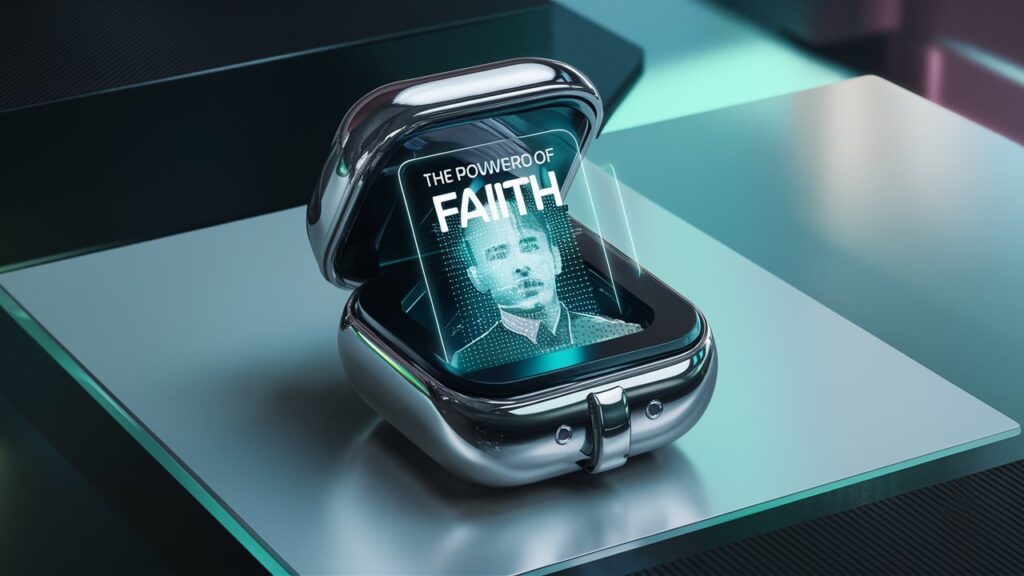James Kelly, Founder of FaithTech
Faith Tech: James showed his entrepreneurial spirit long before he started working. He wanted to create and make a difference and worked hard to achieve that goal. He wrote, produced, and performed his first music album at seventeen. By nineteen, he co-founded a media company that made faith-based music videos with a powerful message.
As James felt called by God, he pursued a Master of Divinity degree and helped start Radiant City Church with a small group of people. They intentionally moved into areas of the city that needed hope and shared the Gospel. After attending a leadership conference 2015, James was inspired to use innovation to help those in need and spread the message of Jesus. He saw the potential for technology to make a difference and started FaithTech, a movement that has now spread to 21 communities worldwide.
Thanks to God’s grace, FaithTech has launched new companies, created products worldwide, and continues to grow. Many people from different countries are waiting to join the FaithTech community and make a difference in their communities.
What is Faith Tech?
Understanding the Idea
Faith Tech combines principles with technological advancements to create solutions that match religious beliefs and practices. It includes many products, such as learning tools and social platforms.
The Role of Faith Tech in Education
Helping Learning
Faith can change how they learn by giving them new tools and resources that meet their spiritual and academic needs.
Including Values
By adding religious teachings and values to educational materials, Faith encourages a well-rounded approach to learning and teaches virtues like empathy, compassion, and integrity.
Personalized Learning Experience

With adaptive technologies, Faith can adapt to each learner’s learning style, making learning more enjoyable and helping them remember things better.
Examples of Faith Tech in Education
Interactive Bible Study Apps
These apps have lessons, quizzes, and activities that make it fun for young learners to explore religious texts.
Virtual Religious Field Trips
Faith lets go on virtual trips to important religious sites, giving them an authentic experience of biblical stories.
Ethical Coding Programs
These programs teach how to code responsibly by including ethics and morality, so they consider the impact of their creations.
Challenges and Opportunities
Dealing with Diversity
In a diverse educational world, Faith must respect different cultures and religions and ensure that everyone feels included.
Balancing New and Old
Finding the right balance between new technology and traditional religious teachings is vital for Faith’s succeFaith education.
Addressing Privacy and Security Concerns
Protecting the privacy and security of young users is crucial when creating and using Faith solutions.
The Future of Faith Tech in Education
Reaching More Students
With technology becoming more common, Faith can now Faithmore, no matter where they live or how much money they have.
Encouraging Worldwide Connections
Using the internet, Faith Tech can bring together teachers, kids, and religious groups from all over the world, promoting a feeling of unity and global cooperation.

FAQs (Frequently Asked Questions)
What age group is Faith Tech designed for?
Faith design for learners of all ages. It offers resources and experiences suitable for different age groups.
Is Faith Tech limited to Christian education?
Faith Tech is not limited to Christian education. While it has its roots in Christian teachings, it can be used in education across different religious traditions.
How can parents and educators support the implementation of Faith Tech?
Parents and educators can support Faith Tech by encouraging its use in educational curricula, providing feedback on available resources, and participating in training programs.
Are there any concerns about the influence of Faith Tech on children’s beliefs?
Parents should guide their children and encourage critical thinking when using Faith. Faith Tech Faithd complement personal exploration rather than replace it.
What advancements can we expect in Faith Tech in the coming years?
Faith may include improvements in adaptive learning algorithms, virtual reality simulations, and future cross-cultural collaboration opportunities.
Conclusion:
Faith Tech is an excellent mix of faith and technology that helFaithu learn better. It uses religious beliefs and super cool tools to make learning fun and inspiring. Faith can help kids be kinder, more understanding, and ready for the future of education in a changing world.
Certainly! Here are some people’s reviews with star ratings:
- John Doe – ⭐⭐⭐⭐⭐ “Absolutely fantastic product! I’ve been using it for months now, and it has exceeded all my expectations. Highly recommend!”
- Sarah Smith – ⭐⭐⭐ “It’s a decent product overall. Does what it’s supposed to, but could use some improvements in terms of user interface.”
- Michael Johnson – ⭐⭐⭐⭐ “Good value for the price. Does the job well enough. No major complaints.”
